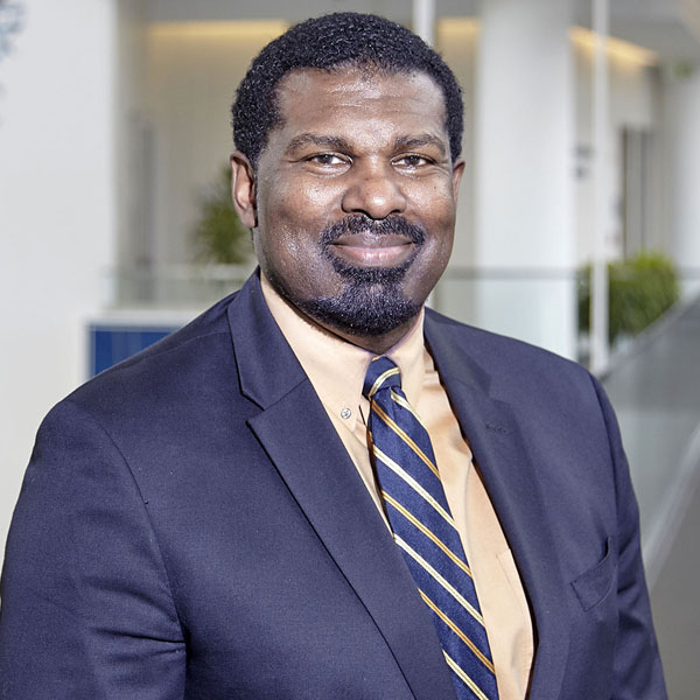Former Walgreens and Lowe’s executive, Chuck Easley Jr., IM ‘86, tells his business school students, “You didn’t come to Georgia Tech because it’s an average place and you want a below-average job and a below-average career. Be ready. Run your leg of the race, too.”
Scheller College of Business Professor of the Practice Chuck Easley Jr. uses the Socratic method, what’s commonly known as “cold calling.” Easley, a former student-athlete and Rhodes Scholar finalist at Tech, learned the technique from one of his professors, Dr. Philip Adler.
“What I do is create a living laboratory,” says Easley, who shares with students his expertise in business transformation and supply-chain optimization and design. “I find the lecture approach is much less impactful. Students can get catatonic listening and just repeat back to me what I’ve said.”
A great believer in instilling in students the importance of relevance and utility, Easley says, “I’ll challenge them. I’ll ask, ‘How many of you have had an accounting class? When you make a presentation, I expect you to use what you’ve learned.’”
He muses that there is nothing like bringing home to students the importance of understanding accounting. The reason? It’s better they grasp bottom-line realities before they go into the real world. “If you are an executive and there’s a drop in revenue and you don’t know if you’ll be able to make payroll, then you’ll pay attention,” he says.
He puts students in groups, what he calls “weaving into them the team-building process hands-on.” For many, that can be daunting. Some groups become teams, and some remain groups. That’s an important distinction, according to Easley. Though he can teach them textbook principles of interpersonal work relationships, the students themselves must rise or fall to the challenge of collaborating with excellence.
He tells his teams he is the senior partner in their consulting firm. He often has them brainstorm how to solve a campus-related problem and apply the techniques they learn in class to solving the problem, a process that can last as long as six weeks. “They live, breathe, and understand how teams and problem-
solving work, and they reap the benefit of feeling fulfillment for that accomplishment.”
Easley brings the real world to class. In March 2019 after the second mysterious crash of a 737 MAX airplane, he used that tragedy—and corporate crisis—to put students on the spot. “I came in and said, ‘Okay, I’m Boeing’s CEO. I’m on-air with MSNBC in 30 minutes. I’m on CNNfn in two hours. From a marketing standpoint, what do we need to do? Let’s take the nine-step methodology around marketing consulting. What are the most critical things I can tell the media that Boeing needs to do?’”
“Cold calling is rigorous. It’s tough,” agrees Todd. About half of his engineering students have never been forced to defend a position in class. “There’s nothing to calculate,” he says. “There’s no right or wrong answer. I’m looking for your critical thinking skills and ability to analyze a situation.”
Reprinted from Georgia Tech Alumni Magazine, Vol. 98, No. 2, "Tech's Best Kept Secrets."

